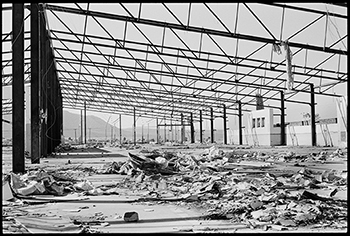Latest News Archive
Please select Category, Year, and then Month to display items
24 July 2024
|
Story Lacea Loader
![]()
The University of the Free State (UFS) is co-hosting the Global Social Innovation Indaba together with Social Innovation Exchange (SIX) on its Bloemfontein Campus from 30 September to 2 October 2024. This event brings together people from different sectors all over the world to discuss how to accelerate and support people-powered
change and create a better society for generations to come.
The UFS is excited to collaborate with SIX, as its vision and values overlap. During this three-day indaba, aspects such as – what it takes to build accountable, inclusive, and participatory institutions, specifically the future role of universities in South Africa – will be discussed. Themes to be explored include young people as drivers of change, post-industrial transitions and community resilience, the role of art, social change and bridging divides, and systemic approaches to dealing with unemployment.
Some of the speakers and participants in the programme include Carla Duprat from ICE (Brazil); Cheryl Jacob from ESquared Investments (South Africa); François Bonnici from the Schwab Foundation for Social Entrepreneurship (Switzerland); Sir Geoff Mulgan from the University College London (UCL) in the United Kingdom; and Dr Narissa Ramdhani from the Ifa Lethu Foundation (South Africa).
The UFS will also use the opportunity to showcase its campus and offerings to attendees, focusing on its transformation story and some of the interdisciplinary forward-thinking programmes. Guests will also be treated to true South African hospitality, laying the foundation for strong relationships and collaboration.
SIX believes in the transformative power of people working together. Exchanges based on mutual value and reciprocity are the missing link in tackling the world’s problems. As a friendly, expert entry point to global social innovation, their work connects organisations, sectors, communities, and nations to build capabilities and create opportunities for collaboration.
Award-winning photographer exhibits ravages of war, 25 May 2016 until 17 June 2016
2016-06-02

The ruins of the Dimbaza Border Industrial Park built
in the 1970s as a source of cheap labour for industrialists
and ostensible employment for Ciskei Homeland citizens.
This industrial zone collapsed after 1994.
Photo: Images courtesy of the Galerie Seippel.
All images © Cedric Nunn
Cedric Nunn’s latest photographic exhibition, Unsettled: One Hundred Years War of Resistance by Xhosa Against Boer and British, opened on 25 May 2016 at the Johannes Stegmann Art Gallery of University of the Free State, and will run until 17 June 2016. Since 2014, the exhibition has travelled through South Africa and the USA as well as Germany.
The photographer, documentary film-maker, and artist’s photographic journey was launched in the early 1980s in Durban. In 2011, he won the first FNB Joburg Art Fair Award.
Narratives of the victors and the vanquished
Unsettled deals with the nine wars that Xhosa people were subjected to between 1779 and 1879 in their fight against Afrikaner and British colonial settler forces. Nunn’s art seeks to instigate social change, and highlight lesser-seen aspects of society.
The work emanated from his awareness of a notable gap in the telling of this piece of South African history, as well as the fact that, to date, little has been done to memorialise these acts of colonial aggression and Xhosa resistance. He decided to document the land where these struggles took place.
“Through revisiting this painful past in the contemporary scenes of today, this work attempts to place the present in its factual context of dispossession and conquest,” said Nunn.
Unsettled forms the first component of what will be a trilogy. The next component will address the legacy of colonial dispossession through “bringing ‘the first inhabitants’ back into the picture by giving a select number of self-describing Khoi, Griqua, and San or Bushmen a contemporary face and presence”. The final component will look at slavery.